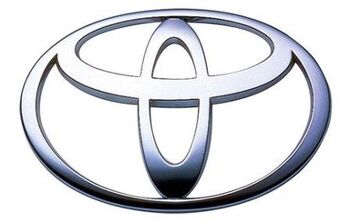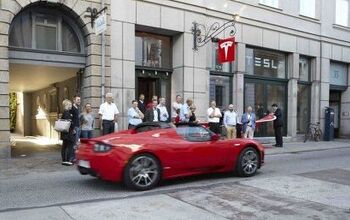Redflex Under Fire

Twenty-fifteen was a tough year for Redflex, the well-known and thoroughly-loathed Australian purveyor of corruption, bribery, and traffic-ticket cameras.
Although the firm’s US arm obtained a small victory in the $300 million lawsuit filed against it by the city of Chicago, getting the case transferred to federal court, Chicago is expanding the scope of its lawsuit in response. Meanwhile, smaller municipalities are abandoning Redflex in droves — and the numbers make it easy to see why.
Chicago has amended its lawsuit against Arizona-based Redflex Traffic Systems to include its parent, Australian corporation Redflex Holdings Limited. How easy is it to sue an Australian firm? How easy is it to collect a judgment against said firm? Probably not that easy. Still, the city’s move shows that it’s in deadly earnest about using the contents of Redflex’s pockets to line its own.
In my hometown of Columbus, Ohio, unsealed documents show that Redflex officials took a federal slap on the wrist for successfully bribing city officials to agitate for red-light cameras in general and Redflex products in particular.
Now Austin, Texas bedroom community Round Rock has thrown Redflex out, but for a very different reason: the cameras are enriching Redflex but doing virtually nothing for the municipality. These are the numbers:
Over the past four years, the city collected $2.5 million in fines. Slightly more than $2 million of that went to Redflex to install and operate the cameras, and $105,858 went toward city expenses.
That left $353,249 in net revenue for the city. But half of that amount went to the state, leaving the city with about $176,624.
And as for safety?
But data from the red-light cameras showed there were no trends either way on drivers’ behavior at the intersections. For example, city data show citations for red-light runners at RM 620 and Deepwood Drive would increase and decrease from one month to the next.
“It was impossible to determine a trend,” he said. “And if you didn’t see any significant change in traffic behavior, then what was the point?”
Presumably, the true point was to collect more than $176K out of $2.5M.
Throughout Texas, eyebrows have been raised as the number of collisions at some monitored intersections has risen while the funds collected by the state from red-light violations have been used for purposes other than the safety and education programs for which they were originally earmarked.
Nor are the problems limited to Texas; New Jersey ended its pilot program and sent Redflex home last year after Redflex took almost half of the revenue in a statewide program that saw an increase in pedestrian injuries.
Those of us who take some pleasure in watching this firm crash and burn can obtain additional enjoyment from the fact that Redflex has basically shut down its media site. No more “big wins” for Redflex. Yet the company has one more idea up its sleeve: a camera system that tickets drivers for passing a school bus. If you know the Redflex story up to this point, you won’t be surprised to hear that a significant portion of the ticketed ‘violations’ come from drivers passing a bus during the deployment of the sign, or during the first second after it was deployed.
In a way, it’s ironic that Redflex is pinning its last hopes on the school-bus system. After all, as it is likely to discover in court, when federal judges have to choose between torpedoing a foreign corporation’s local subsidiary or ruling against Fortress Chicago, it tends to be the businessmen who get thrown under the bus.
[Image courtesy of CameraFraud]

More by Jack Baruth
Latest Car Reviews
Read moreLatest Product Reviews
Read moreRecent Comments
- Jkross22 I'd imagine there's a booming business available for EV station repair.
- JLGOLDEN Enormous competition is working against any brand in the fight for "luxury" validation. It gets murky for Cadillac's image when Chevy, Buick, and GMC models keep moving up the luxury features (and price) scale. I think Cadillac needs more consistency with square, crisp designs...even at the expense of aerodynamics and optimized efficiency. Reintroduce names such as DeVille, Seville, El Dorado if you want to create a stir.
- ClipTheApex I don't understand all of the negativity from folks on this forum regarding Europeans. Having visited the EU multiple times across different countries, I find they are very much like us in North America-- not as different as politicians like to present them. They all aren't liberal "weenies." They are very much like you and me. Unless you've travelled there and engaged with them, it's easy to digest and repeat what we hear. I wish more Americans would travel abroad. When they return, they will have a different view of America. We are not as perfect or special as we like to believe. And no, many Europeans don't look up to America. Quite the opposite, actually.
- Dwford Let's face it, Cadillac is planning minimal investment in the current ICE products. Their plan is to muddle through until the transition to full EV is complete. The best you are going to get is one more generation of ICE vehicles built on the existing platforms. What should Cadillac do going forward? No more vehicles under $50k. No more compact vehicles. Rely on Buick for that. Many people here mention Genesis. Genesis doesn't sell a small sedan, and they don't sell a small crossover. They sell midsize and above. So should Cadillac.
- EBFlex Sorry BP. They aren’t any gaps


































Comments
Join the conversation
I don't understand the Redflex monopoly. These things were never more than medium tech to begin with, and anything important went off-patent years ago. These things should be available off the shelf and something a town could install and calibrate conservatively and still come out way ahead.
Red light and speed cameras are everywhere out here in Alberta. They'll even stick them in unmarked vehicles at the roadside. I once saw a late model Ram with an ATV in the bed that was being used for speed camera duty. A high quality Radar/Laser detector with GPS locations for the stationary cameras is a savior.